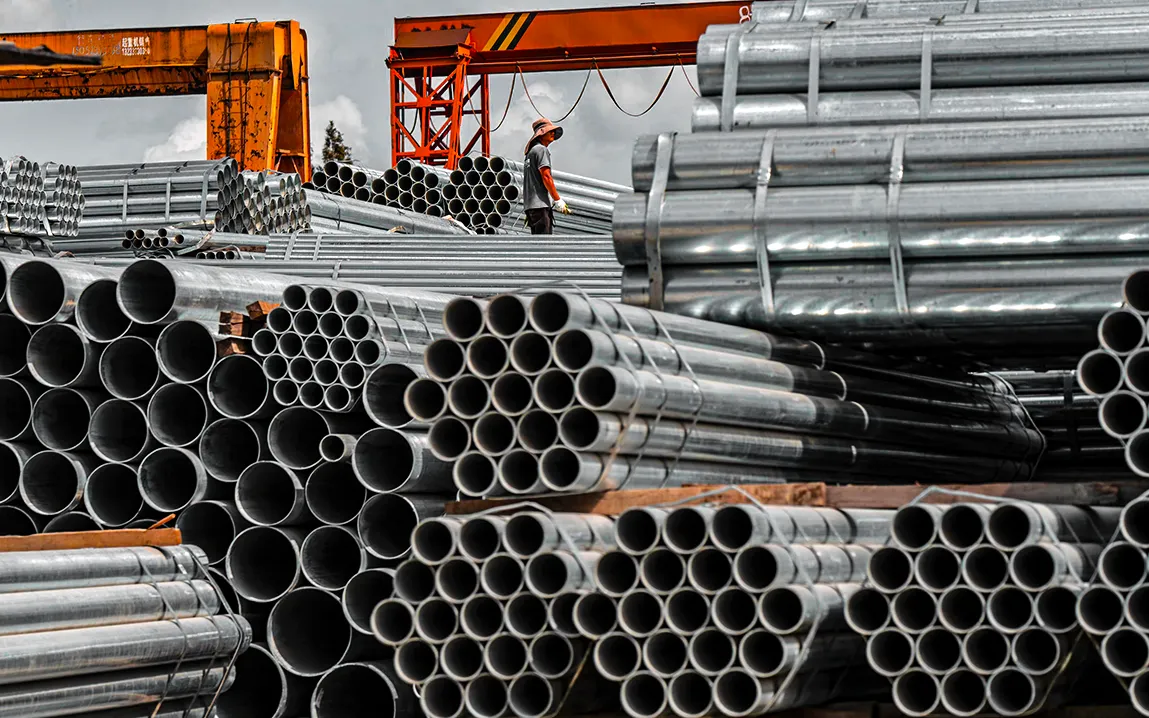In reaction to growing global trade tensions and the new 25% tariff imposed recently by the United States on steel imports, the government of Canada launched a 30-day public forum to consider possible trade actions that would protect its local steel industry. This preemptive action reflects Canada’s determination to shield its steel producers and employees from the negative impact of diverted foreign steel products into the Canadian market.
Background
The international steel market is presently facing high overcapacity, which has resulted in the flooding of low-cost foreign steel into global markets. These market conditions are a threat to Canadian steel manufacturers and employees, as these below-cost imports have the potential to destabilize local industry. The new U.S. tariffs make this situation worse by raising the chances of steel products, originally bound for the U.S., being diverted to Canada, thus further concentrating competitive forces on domestic manufacturers.
Government’s Response
In response to the potential injury from rising imports of steel, the Canadian government has initiated an open consultation for evaluating potential trade actions to ensure that steel products are not diverted into Canada. The move will seek input from different stakeholders such as industry representatives, consumers, and other parties with an interest in the outcome to guide the formulation of responses that safeguard the local steel industry.
Scope of the Consultation
The consultation solicits comments in a number of important areas:
Scope of Steel Products: Nominating precise steel products likely to be under consideration for import measures, specifying full product descriptions and relevant tariff classifications.
Evidence of Increased Imports: Offering evidence of actual or potential surges in the imports of mentioned steel products.
Impact on Domestic Producers: Recording injury or threat to domestic producers, i.e., layoffs, decreased profitability, or erosion of market share.
Country-Specific Issues: Providing insights on imports from specific countries or regions that could be a threat to the Canadian market.
Economic Consequences: Evaluating the commercial and economic effects of possible measures, such as sourcing implications and regional availability.
Design and Implementation of Measures: Seeking opinions on the design, length, and implementation of any possible measures, like suggested tariff rates or tariff-rate quota quantities.
Trade Policy Tools: Explaining the application of particular trade policy tools to resolve the problem.
Additional Information: Offering any other information that may be useful in considering possible measures.
Stakeholder Information: Gathering information of Canadian businesses or industry groups, including contact details, to enable further communication.
The stakeholders are invited to provide their comments to the Department of Finance Canada at fin.simaconsult-lmsiconsult.fin@fin.gc.ca by April 21, 2025.
Recent Protective Measures
This consultation supports recent measures by the Canadian government to come to the aid of its steel and aluminum sectors. In reaction to American tariffs, Canada responded with reciprocal tariffs on March 13, 2025, in the form of a 25% tariff on a list of steel valued at $12.6 billion and aluminum valued at $3 billion, along with other imported American goods valued at $14.2 billion, totaling $29.8 billion.
Moreover, an additional 25% surtax on imports of Chinese steel and aluminum products was imposed, effective October 22, 2024, in order to offset China’s non-market policies and practices and to prevent trade diversion resulting from Canadian trading partners’ actions.
The Canadian government has strong trade remedy and import monitoring mechanisms in place to guard against unfair trade from any source. These mechanisms give direct access to Canadian companies and workers injured by unfairly traded products entering the Canadian market. The government remains vigilant on the trade situation and stands ready to take further action if necessary to defend domestic industries against these threats.
Statements from Government Officials
The Honourable François-Philippe Champagne, Minister of Finance, underlined the priority of the government in supporting Canadian businesses, workers, and families against the unjustified trade dispute with the United States. He further stated that the consultation is intended to review trade measures that would better protect Canada’s steel sector from the threat of diversion of steel products into the Canadian market.
The Honourable Anita Anand, Minister of Innovation, Science, and Industry, reaffirmed the government’s opposition to unwarranted U.S. tariffs against Canadian steel and aluminum. She emphasized Canada’s strong steel industry and the government’s commitment to defending Canadian workers, continuing to make an investment in made-in-Canada goods, and standing up for the world-class industry.
Conclusion
Through this public consultative process, the Canadian government manifests its commitment to defending the local steel industry from external challenges potentially emanating from international trade patterns. By reaching out to stakeholders and examining holistic measures, Canada endeavors to guarantee the competitiveness and resilience of its steel industry amid emerging international trade imperatives.



